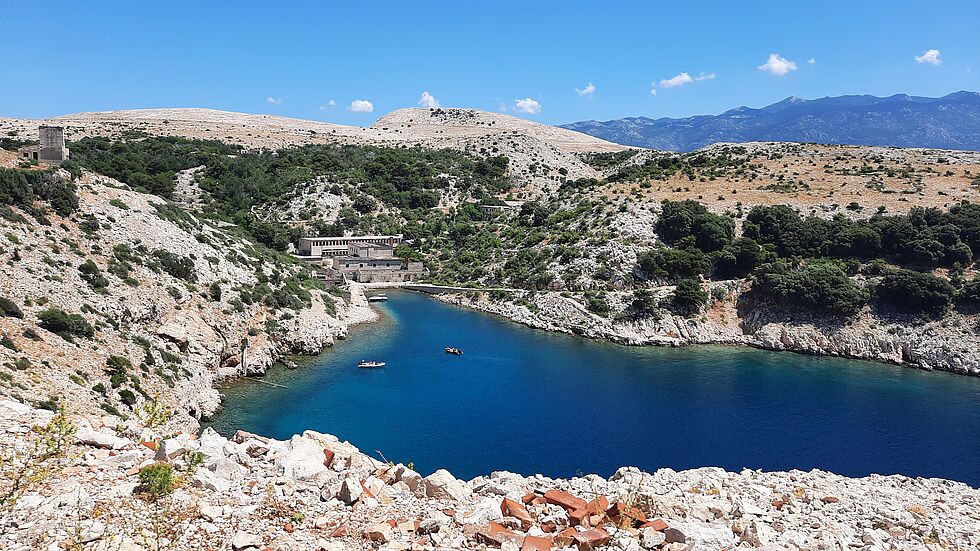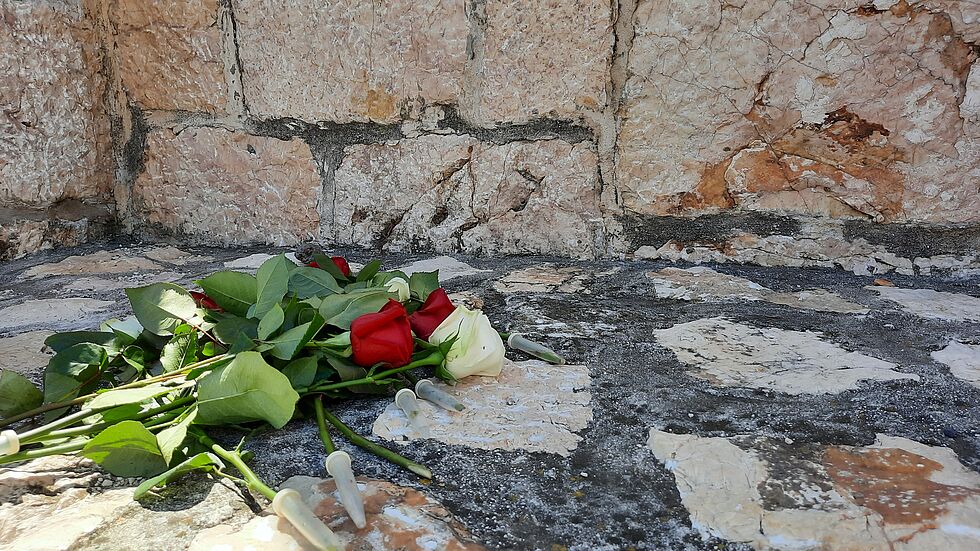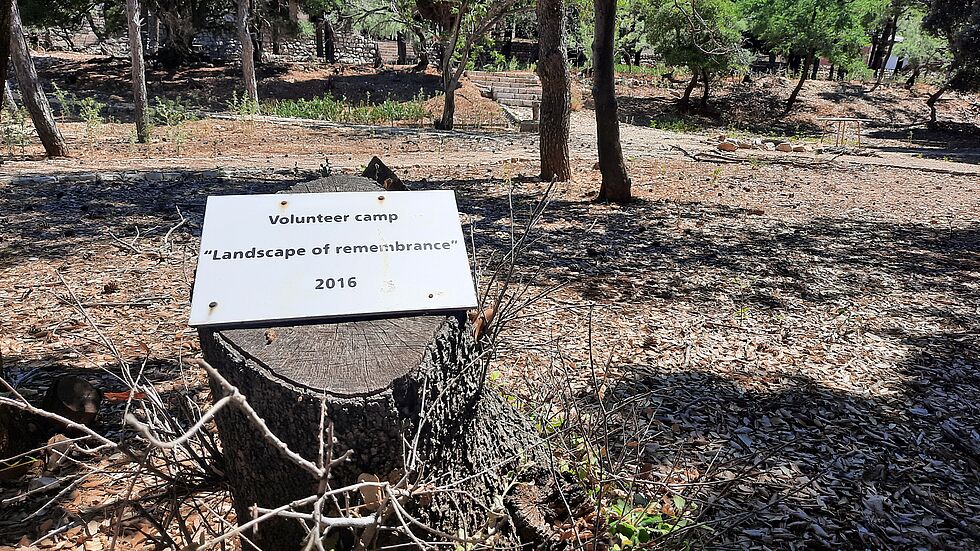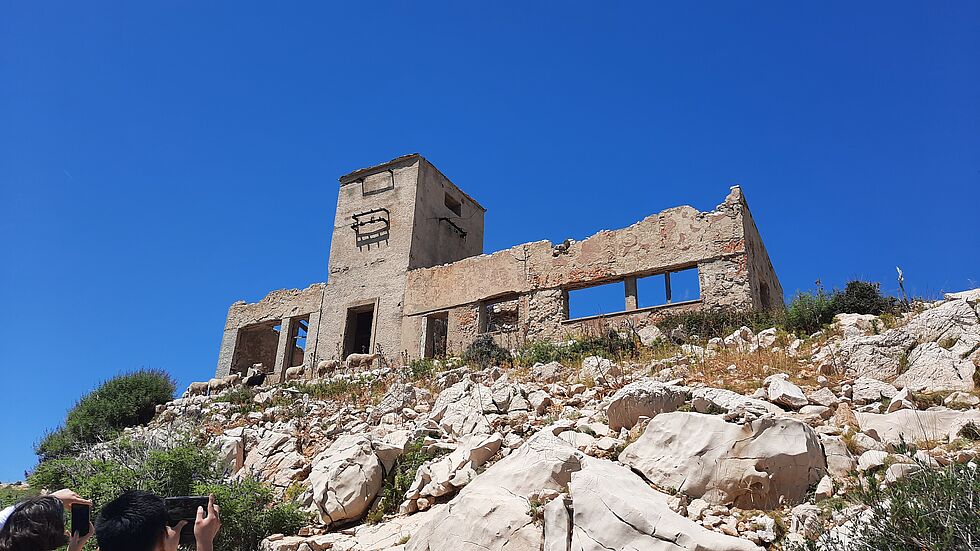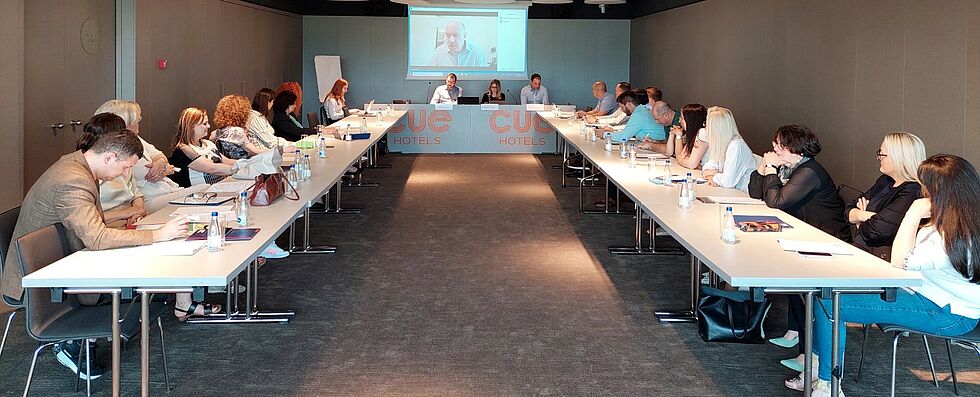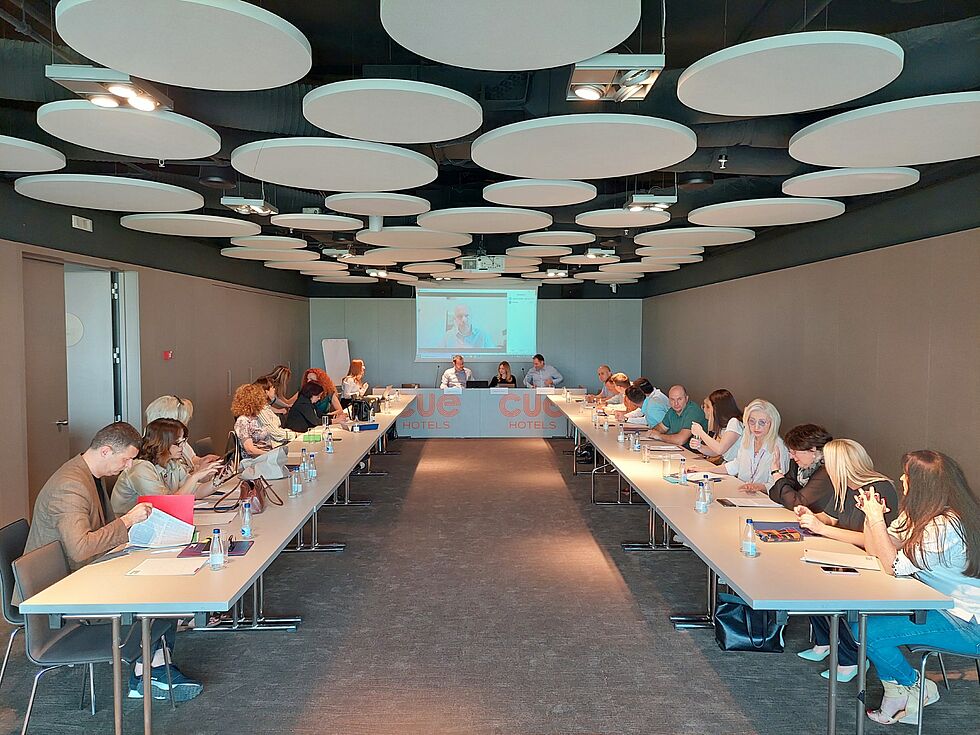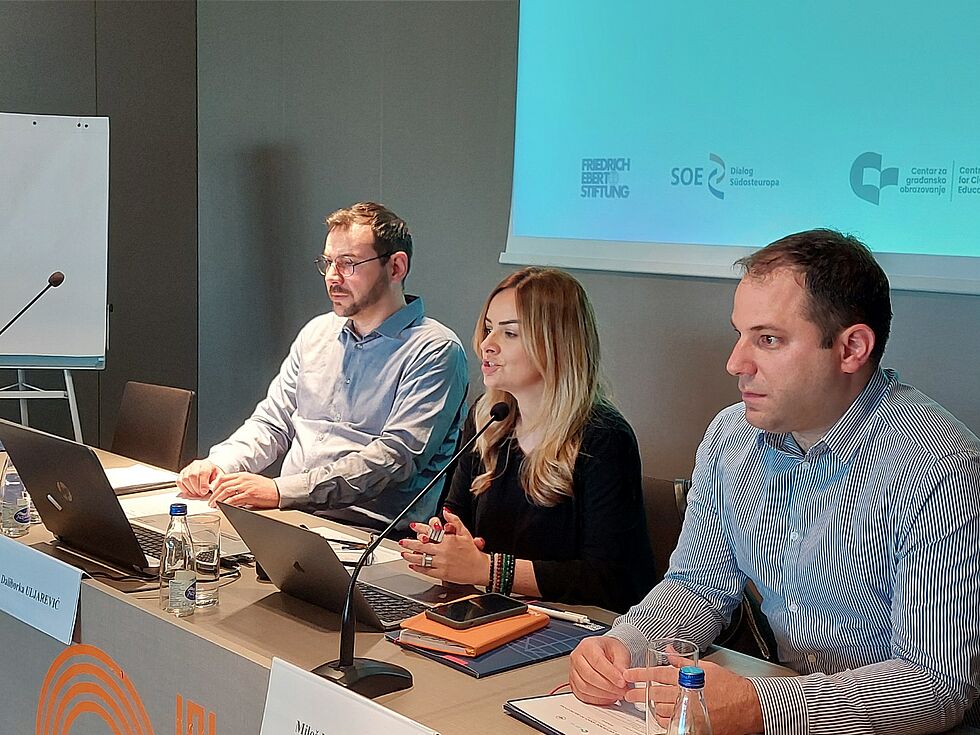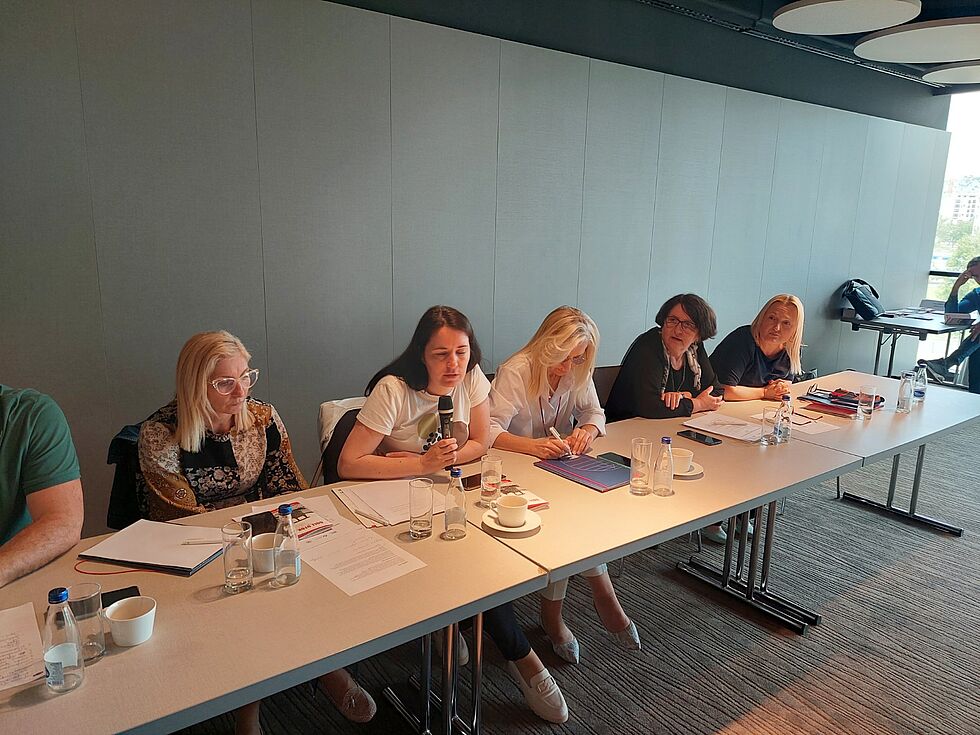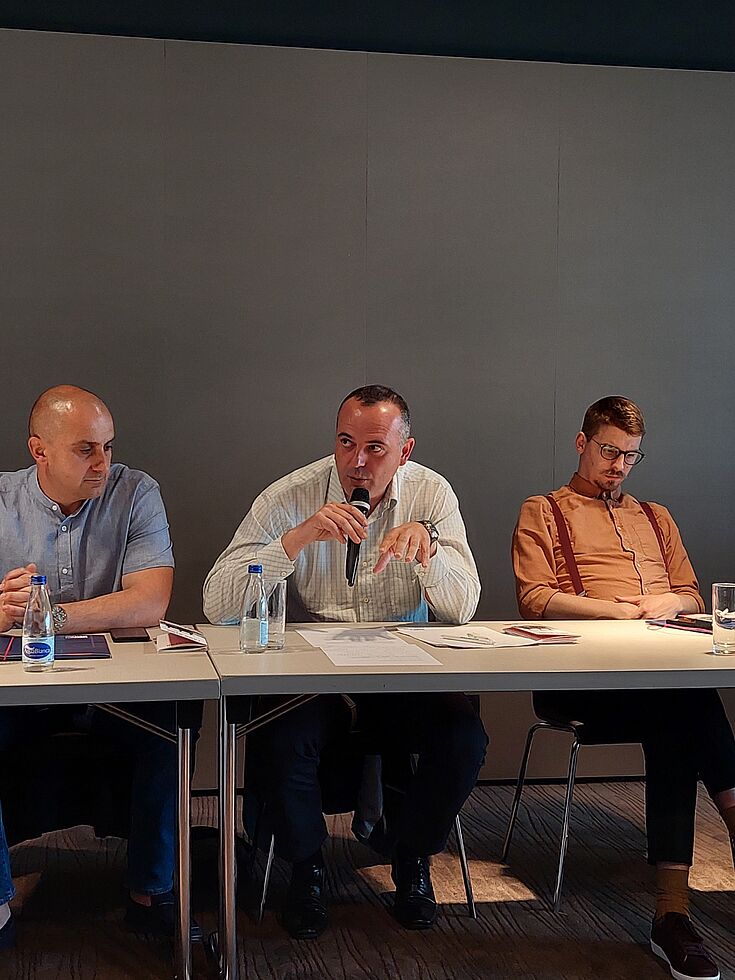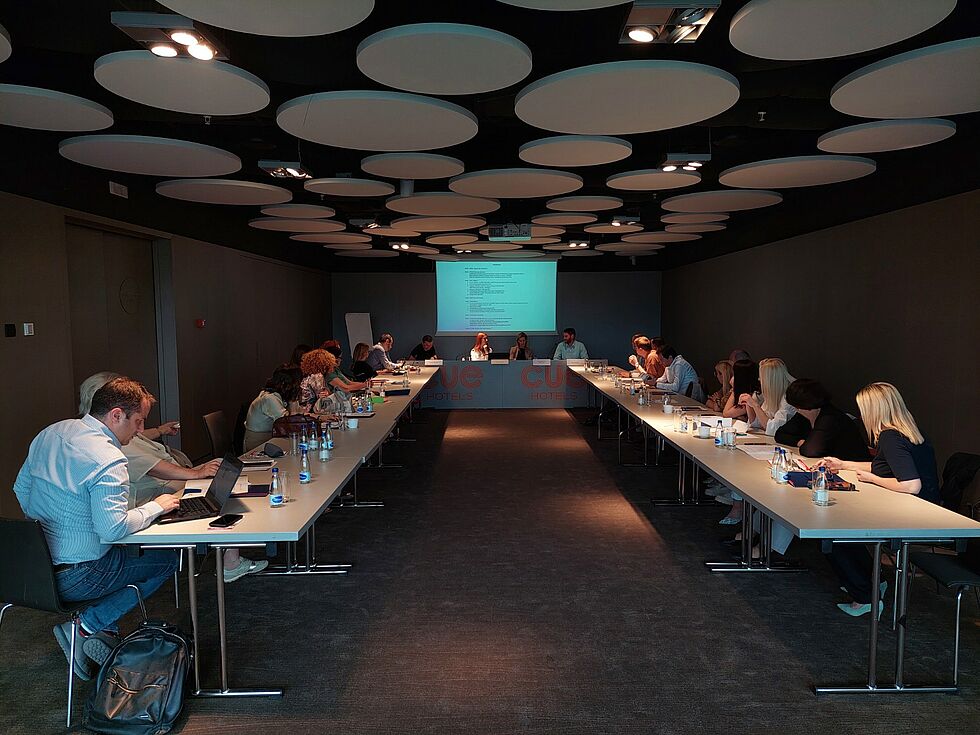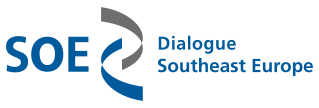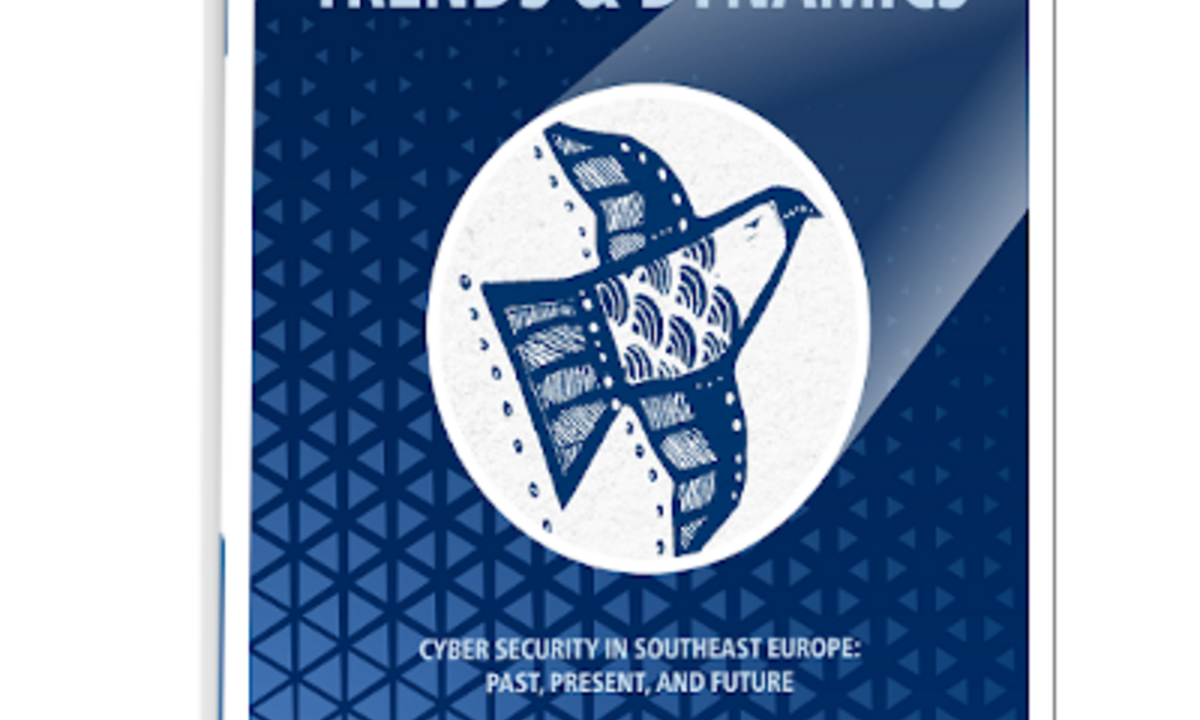Goli Otok Memorial Visit
Goli Otok (the Barren Island) is an island of sparce vegetation (hence the name) dominated by limestone and marble, with no sources of water, including permanent surface flows. It was used as a detention camp with two distinct purposes, in time periods 1949-1956 and 1956-1988. In both periods, it was used as a forced labor camp in former Yugoslavia. The guided tour that our group underwent focused more on the first time period of Island´s use, during which it was used to detain political transgressors who (allegedly or really) still remained supportive of Stalin, after the USSR leader and Yugoslavia´s Tito severed bilateral relations between their countries.
In addition to the guided tour, and familiarizing with the history of the island, the delegation´s also gave their respects, in memory of the people that lost their lives due to the torturous treatment they underwent at Goli Otok. July 9th marks the day of arrival of the first inmates in 1949, and it is the goal of Documenta to hold annual commemorations on this day.
The importance of preserving the knowledge of Goli Otok is related to dealing with the past responsibly. In order to fully reconcile and build a prosperous region, it is necessary to acknowledge the history in full, and its consequences, throughout the entire former Yugoslavia, both chronologically and spatially. Despite whatever transgressions were at hand, the inmates of the island were inhumanely treated until the regime broke their will and their body. There was no true rehabilitation as a goal, but rather a goal of bending the political will, that would afterwards serve loyally to one agenda, instead of the other.
Upon invitation of FES Dialogue Southeast Europe, the group was joined by journalists Vedrana Maglajlija (Al Jazeera Balkans) and Dragan Bursać, who summarized their impressions of the Goli Otok in two articles, both available online:
Vedrana Maglajlija (Al Jazeera Balkans): Goli otok, pakao gdje su „preodgajani“ YU disidenti
Dragan Bursać: Dragan Bursać završio na Golom otoku!
Friedrich Ebert Stiftung Zagreb and Documenta, with the support of the regional office, have also contributed to preserving facts of the Goli Otok through creating a virtual tour guide through the island. The website is available in 9 languages. Goli Otok Virtual Tour Guide
Friedrich-Ebert-Stiftung
Dialogue Southeast Europe
Kupreška 20, 71000 Sarajevo
Bosnia and Herzegovina
Team & Contact
Subscribe to our mailing list and receive our publications as soon as they are available: send us your contact info via info.soe(at)fes.de


